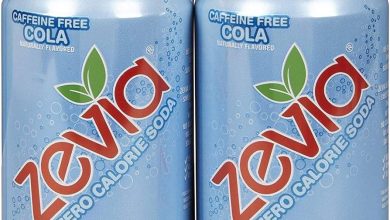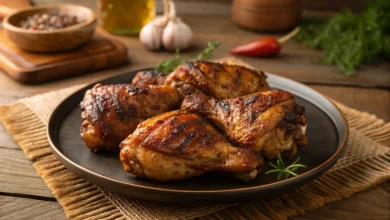Turkey Breast Meat (Skinless, Cooked, Roasted)
Turkey breast is a lean and nutritious choice for any meal, offering a wealth of health benefits. When roasted and skinless, it provides a rich source of high-quality protein, making it an excellent option for anyone looking to maintain a healthy diet or build muscle. This lean cut of turkey is low in carbohydrates, free from sugars and fiber, and packed with essential vitamins and minerals, making it a well-rounded addition to your meal plan.
Nutritional Information
| Nutrient | Amount per 100g |
|---|---|
| Energy | 164 kcal |
| Protein | 29.01 g |
| Total Fat | 5.33 g |
| Saturated Fat | 1.657 g |
| Carbohydrates | 0.05 g |
| Fiber | 0.0 g |
| Sugars | 0.0 g |
| Calcium | 15 mg |
| Iron | 1.03 mg |
| Magnesium | 29 mg |
| Phosphorus | 251 mg |
| Potassium | 292 mg |
| Sodium | 114 mg |
| Zinc | 1.57 mg |
| Copper | 0.064 mcg |
| Manganese | 0.006 mg |
| Selenium | 29.8 mcg |
| Vitamin C | 0.0 mg |
| Thiamin (Vitamin B1) | 0.042 mg |
| Riboflavin (Vitamin B2) | 0.199 mg |
| Niacin (Vitamin B3) | 11.614 mg |
| Vitamin B6 | 0.789 mg |
| Folate (Vitamin B9) | 9 mcg |
| Vitamin B12 | 1.75 mcg |
| Vitamin A | 10 mcg |
| Vitamin E | 0.07 mg |
| Vitamin D2 | 0.3 mcg |
Allergen Information
This turkey breast meat is naturally free from common allergens such as gluten, dairy, and soy. However, individuals with sensitivities to poultry or specific additives used in processing should exercise caution and check product labeling for any potential allergens.
Dietary Preferences
- Gluten-Free: Yes
- Dairy-Free: Yes
- Paleo-Friendly: Yes
- Keto-Friendly: Yes
- Low-Carb: Yes
- High-Protein: Yes
Health Benefits
Turkey breast meat, especially when roasted and skinless, is an outstanding source of lean protein, which is essential for muscle repair, growth, and overall bodily function. It’s low in fats, particularly saturated fat, making it heart-healthy. Additionally, this cut of turkey provides a substantial amount of niacin (Vitamin B3), which is important for metabolism and maintaining healthy skin and nerves. The selenium content also supports immune function and has antioxidant properties, while the iron and phosphorus promote healthy red blood cells and bone health.
Tips for Preparation
Turkey breast is incredibly versatile and can be used in a variety of dishes. Whether you’re making a classic turkey sandwich, incorporating it into a salad, or pairing it with seasonal vegetables, the rich, savory flavor of roasted turkey breast makes it a perfect choice for any meal. To keep it moist and flavorful, try roasting it with a bit of olive oil, garlic, and your favorite herbs.
For those following low-carb, high-protein, or ketogenic diets, turkey breast serves as an excellent main course. Additionally, it can be shredded or chopped and added to soups, wraps, or casseroles for added flavor and nutrition.
Conclusion
Turkey breast meat, when cooked and served without the skin, is a lean, high-protein food choice that offers a wide array of nutritional benefits. It’s an excellent option for anyone seeking to increase their protein intake while keeping fat and carbohydrate consumption in check. Whether enjoyed as the centerpiece of a meal or used as an ingredient in a variety of recipes, this versatile poultry option remains a staple for health-conscious eaters.










